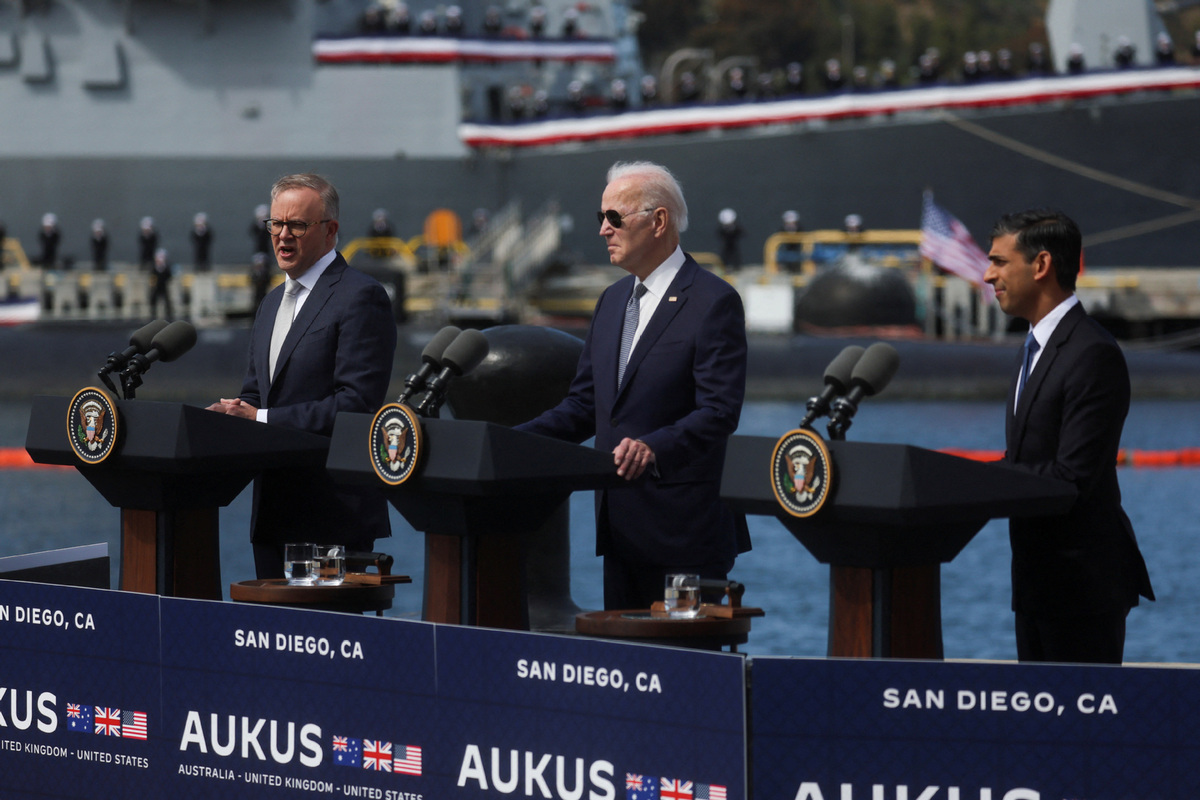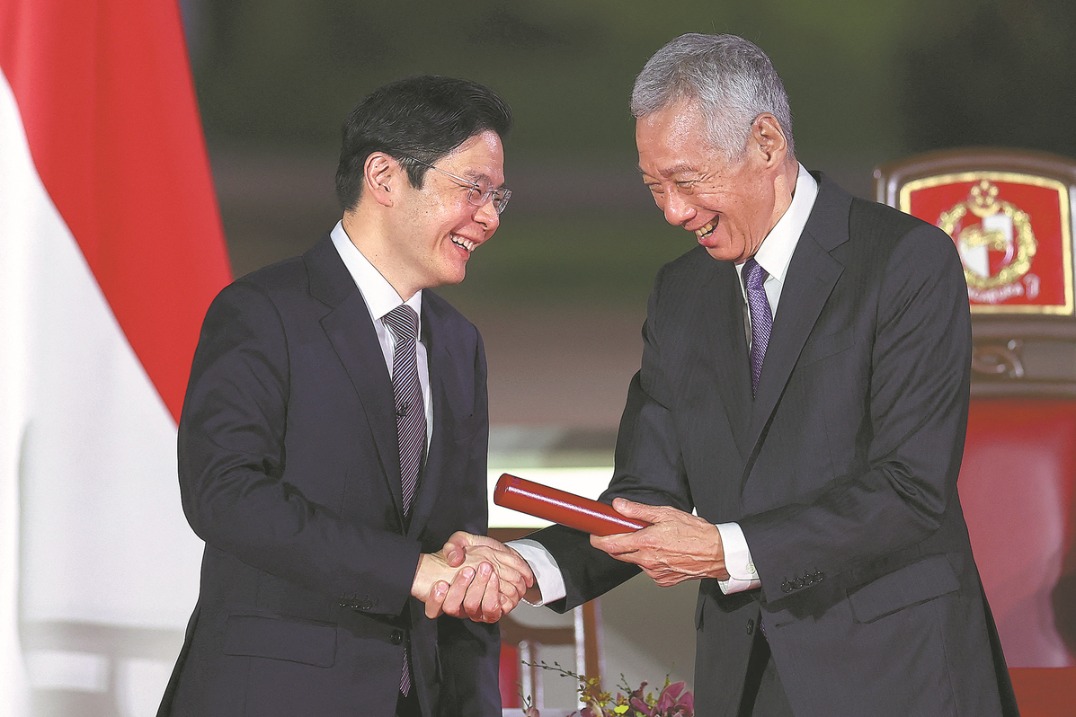AUKUS defies nuclear nonproliferation regime: China Daily editorial
chinadaily.com.cn | Updated: 2023-11-27 19:44

That the United States and the United Kingdom are powerful developed countries does not give them the right to subvert the international rules aimed at nuclear nonproliferation.
Both countries have in the past been vocal supporters of the International Atomic Energy Agency's work to prevent countries acquiring nuclear weapons capabilities. That is in sharp contrast to their insistence that the IAEA green-light their de facto handover of nuclear weapons to Australia by means of the nuclear submarine deal the three countries announced in September 2021 under the AUKUS framework.
As Li Song, China's permanent representative to the IAEA, told a meeting of the IAEA board of governors on Friday, the AUKUS collusion poses grave challenges to the international nonproliferation regime that has been a bedrock of postwar peace and stability. His call for intergovernmental discussions at the IAEA to address the proliferation risks posed by the AUKUS deal should not fall on deaf ears given the bad demonstration effect and the nature of the clique's opaque collaboration.
The deal aims to sharpen the blade of the US-led clique in its geopolitical game in the Asia-Pacific. But that comes at the cost of regional stability and nuclear security. If the IAEA gives a green light to the deal, it will be openly flouting its purpose.
The AUKUS countries are even trying to bend the "atoms for peace and development" organization to their will by going so far as to force other IAEA member states to take sides, bad-mouthing those states that oppose their move as being the threats that justify it. That fallacious argument is intended to subvert the IAEA's safeguards system that has historically been achieved through consensus. As Li said, such a tradition has ensured that the IAEA safeguards system has kept pace with the times, on the basis of the general acceptance and support of member states.
Approval of the AUKUS deal, which involves political, security, legal and technical issues, would set a dangerous precedent, fatally undermining the IAEA safeguards system and relevant safeguards practice. The IAEA would lose any claim to authority, impartiality and neutrality. More and more IAEA member states, having recognized the complexity and gravity of the situation, have voiced their concerns.
That Friday's IAEA board meeting marked the 11th time that the AUKUS deal was on the formal agenda of one of its quarterly meetings, without producing any concrete results, indicates the IAEA Secretariat's ineffectual response to the international community's collective concerns over the matter, raising suspicions of partiality toward the US camp.
That means before the IAEA member states reach a consensus through intergovernmental discussions on the AUKUS issue, relevant safeguard arrangements should not be interpreted and decided behind closed doors by only the AUKUS countries and the IAEA Secretariat.
China will continue to push for the intergovernmental discussion process so as to uphold the authority and efficacy of the international nonproliferation regime and the IAEA safeguards system.
























